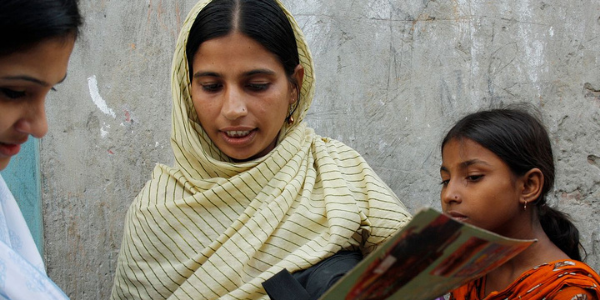
‘We Can Work in Any Situation Now’
22 December 2020
The ‘Inside Districts’ series launched in April is a one-of-its-kind attempt to capture the experiences of district and Block-level officials, panchayat functionaries, beneficiaries and frontline workers, on their challenges and best practices.
This interview was conducted with an ASHA worker in Bhopal, Madhya Pradesh in Hindi on 23 October 2020 and has been translated.
Q. How do you feel about your workload during the pandemic?
ASHA: In the initial days of the pandemic, my family was not allowing me to go outside for work. All of us were scared! However, later when the Auxiliary Nurse Midwife (ANM) talked to them, they understood.
During the lockdown, when everyone was at home, we were going out like a warrior and spreading awareness among people. Simultaneously, we were also constantly worried about our families. After a day’s work, we would come home but stay away from the family. Staying away from children was especially challenging.
However, these times have made us more confident, we can work in any situation now!
Q. How have your duties changed after the Unlock?
ASHA: We have not been assigned any pandemic-related work now. We are back to our routine tasks. People are not scared of COVID-19 anymore. Everyone has started going out for work.
Q. Was vaccination being routinely administered during the early phases of the pandemic?
ASHA: Vaccination could not happen for three months – March, April, and May. In these three months, people had to visit the Community Health Centre for vaccination, and emergency purposes.
It was in June that vaccinations started again, and only five women were allowed to come at a time to ensure social distancing. In the initial days, only 50 per cent of the expected number of beneficiaries were coming because of the fear of COVID-19, but the number has increased now.
Q. What kind of challenges are you facing right now?
ASHA: We have to take the beneficiaries to the CHC. However, at times when we are not able to do that because of some other urgent work, they get really angry.
Also, mothers of malnourished children are required to stay with the child in the NRC for 14 days, but despite explaining this to them multiple times, they are not ready to come to the NRC.





